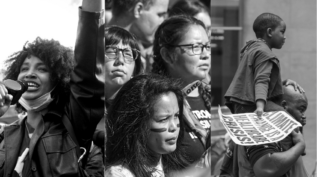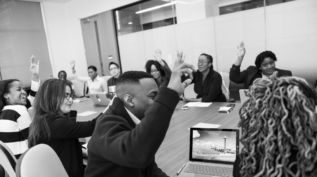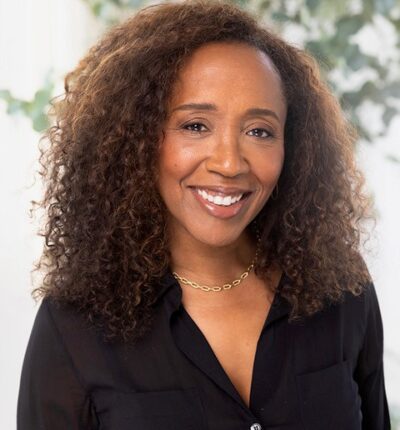The Current State of Family Philanthropy: Seattle Regional Convening
Posted on September 12, 2023 by Sean Boyd, Stephanie Ellis-Smith, Sarah Cavanaugh

Stephanie Ellis-Smith is the CEO and owner of the philanthropic advisory firm Phīla (pronounced phyla) Engaged Giving and is a Chartered Advisor in Philanthropy (CAP) . She works with ultrahigh-net-wealth and high-profile individuals, families, foundations and corporations to make catalytic investments in people and organizations.
Stephanie and her husband Douglas Smith started the Rockhaven Fund in 2008 to fund the arts, humanities, and social justice causes in the U.S. She is a philanthropist, activist, and social entrepreneur. In 2020, she co-founded Giving Gap (formerly “Give Blck”), an online database of Black-founded and led organizations. Having served in a variety of capacities in the social sector–non-profit CEO, social enterprise COO, foundation and non-profit trustee, and even a corporate board member—her diverse experience and deep knowledge makes her unique among her peers and uniquely capable of being a trusted advisor to the world’s most generous families and institutions.
Stephanie has served on numerous local and national boards and commissions including the Washington State Arts Commission, appointed by Governor Gary Locke; the Seattle Arts Commission, appointed by Mayor Greg Nickels; the Central Waterfront Committee, appointed by Mayor Ed Murray, and The Museum Development Authority appointed by current Mayor Jenny Durkan. She was appointed a Dean of Philanthropy by the Purposeful Planning Institute in 2023.
She is the recipient of several awards for her public service. Among them are Artist Trust’s “Creative Catalyst Award”, “The Talented Tenth Award” by the Loren Miller Bar Association, The Microsoft Corporation’s “Community Hero Award”, and was recognized by The Seattle Weekly as “Best Expander of Cultural Boundaries” and by the Puget Sound Business Journal as a“40 Under 40” of regional leaders. Most notably, October 21, 2009 was proclaimed “Stephanie Ellis-Smith Day” by the City of Seattle.
Originally from Los Angeles, Stephanie studied the biological sciences and English literature receiving an undergraduate degree from UCLA. She lives in Seattle and is married to the Russian historian, Douglas Smith.





We’re here to equip you with the tools you need to make a meaningful impact. Contact NCFP for support.
Keep up with trends in family philanthropy. Subscribe to our newsletter.
Gain access to personalized support and a network of peers. Join our community!

